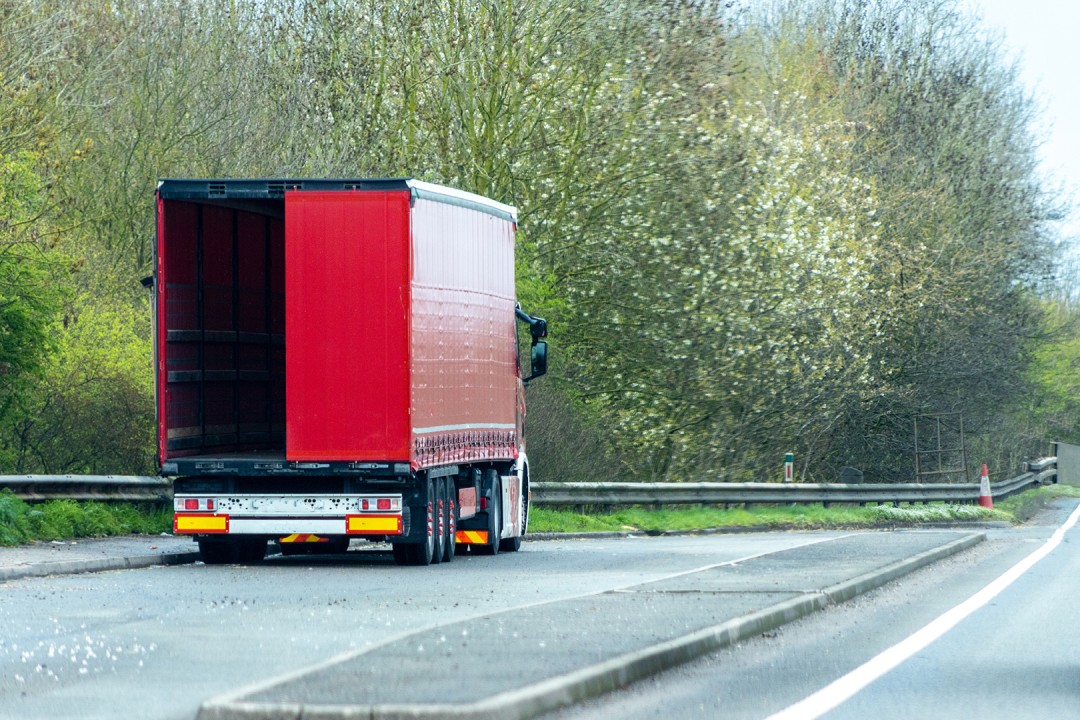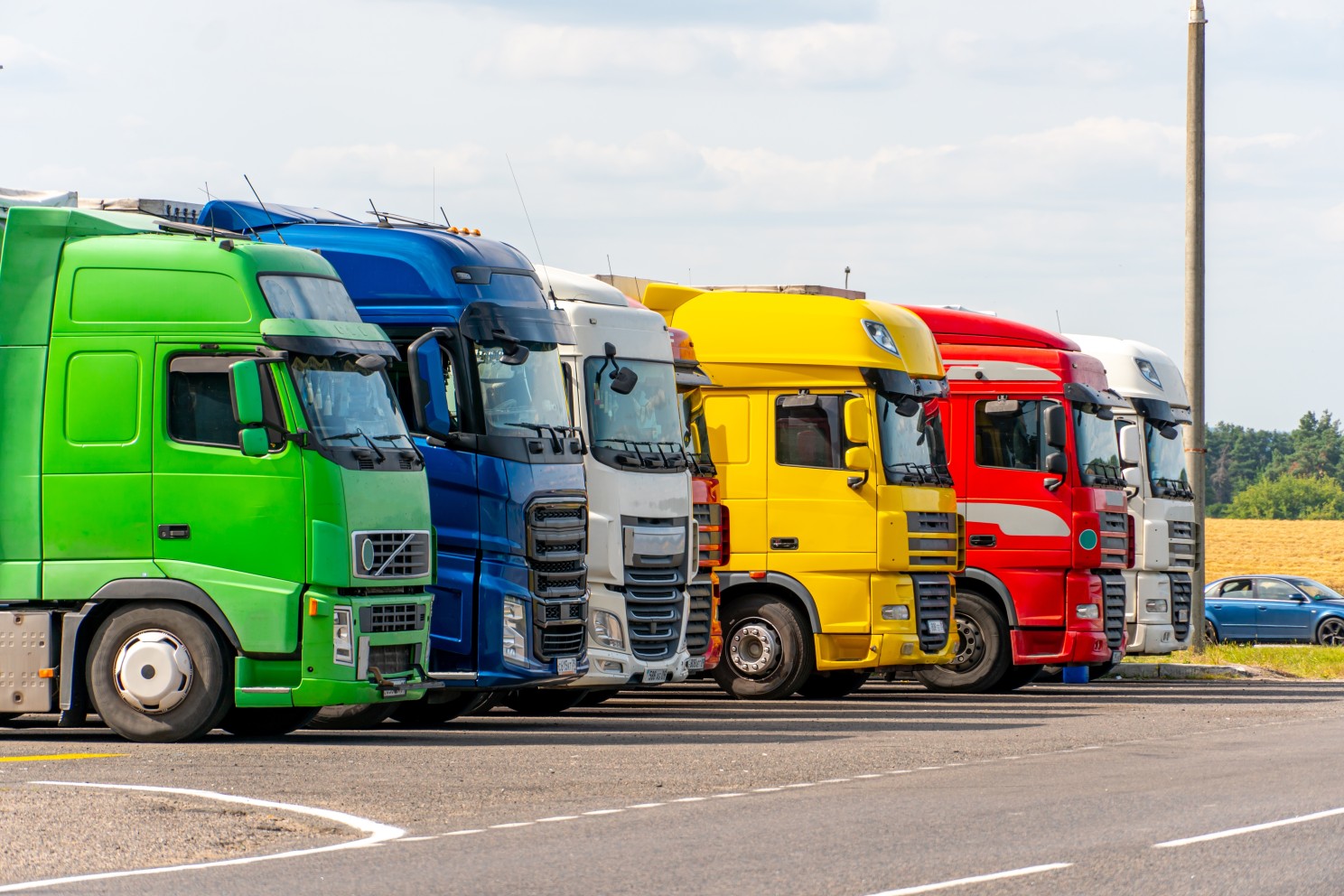
Susie Jones
Czy kierowcy wybierają zatoczki zamiast stacji benzynowych?
Utworzony: 19.08.2024
•
Aktualizacja: 19.08.2024
W 2022 r. w Wielkiej Brytanii odnotowano ponad 5000 zgłoszeń przestępstw związanych z transportem towarów, co spowodowało straty w wysokości około 66 milionów funtów. Zwiększona przestępczość związana z ładunkami stanowi krytyczne zagrożenie dla łańcuchów dostaw, przedsiębiorstw i konsumentów - powodując poważne obawy dla osób z branży transportowej.
Raport opublikowany przez policję Cambridgeshire wykazał, że 46% wszystkich kradzieży ładunków ma miejsce na ulicach i w zatoczkach, a 27% na stacjach benzynowych. Mimo to nasłuch społeczny pokazuje, że wielu kierowców nadal parkuje w zatoczkach z różnych powodów.
Problemy z parkowaniem w zatoce
Dla kierowców parkowanie na noc na postoju jest często najprostszą i najbardziej ekonomiczną opcją. Ma jednak kilka wad, które mogą negatywnie wpływać na zdrowie psychiczne i bezpieczeństwo kierowców.
Udogodnienia - Kierowcy potrzebują więcej udogodnień, takich jak toalety, prysznice i jedzenie. Brak czystych udogodnień może zwiększać dyskomfort i negatywnie wpływać na sen, koncentrację i zdrowie psychiczne.
Bezpieczeństwo kierowców - Parkowanie w zatokach stanowi dodatkowe zagrożenie dla bezpieczeństwa kierowców. Badanie przeprowadzone przez AA wykazało, że dwie trzecie wypadków śmiertelnych z udziałem pojazdów stacjonarnych na drogach dwujezdniowych miało miejsce w zatoczkach - ponad połowa z nich dotyczyła pojazdów ciężarowych.
Kradzieże ładunków - branża odnotowała 380% wzrost kradzieży ładunków od czerwca do lipca 2023 r., co podkreśla potrzebę bezpiecznego parkowania. Ponieważ oportunistyczni złodzieje atakują miejsca postojowe, kierowcy ryzykują utratę ładunku, a floty ryzykują utratę milionów funtów.
Dlaczego kierowcy parkują w zatoczkach?
Pomimo ryzyka, badania społecznościowe przeprowadzone za pośrednictwem Facebook sugerują, że 70% kierowców jest mniej skłonnych do wyboru parkingu dla ciężarówek zamiast postoju z kilku powodów:
Bezpieczeństwo
Informacje zwrotne z mediów społecznościowych sugerują, że 43% kierowców ciężarówek zdecydowało się nie parkować na postoju dla ciężarówek lub stacji paliw z powodu braku środków bezpieczeństwa.
"Parkuję tylko w zatoczkach lub na terenach przemysłowych. Kiedy parkowałem w serwisach/postojach dla ciężarówek, miałem przycięte zasłony", mówi kierowca ciężarówki Luke.
Bezpieczeństwo i ochrona postojów ciężarówek w Wielkiej Brytanii były gorącym tematem dyskusji w branży transportowej - kierowcy domagali się większego wsparcia ze strony rządu w celu zapewnienia dodatkowych instalacji bezpieczeństwa. Z wcześniejszych opinii wynika, że kierowcy chcieliby, aby opłata od pojazdów ciężarowych była inwestowana w bezpieczniejsze, bardziej higieniczne i przystępne cenowo parkingi.
W mediach społecznościowych 59% kierowców ciężarówek stwierdziło, że w Wielkiej Brytanii brakuje wystarczającej liczby bezpiecznych postojów dla ciężarówek w porównaniu z Europą. Opinię tę potwierdzają informacje zwrotne z [SNAP's Truck Park Tour] (https://snapacc.com/truckpark-tour-2023/), gdzie 31% europejskich kierowców stwierdziło, że najbardziej skorzystali na dostępie do ekskluzywnych, bezpiecznych lokalizacji SNAP. Organizacja bezpieczeństwa TAPA jest powszechnie uznawana w Europie - wiele lokalizacji posiada certyfikaty poziomu 1, 2 lub 3.
Z kolei w Wielkiej Brytanii są tylko dwie lokalizacje posiadające certyfikat TAPA - z akredytacją Autoryzowanych Audytorów SNAP PSR na poziomie 3. Formula Services i The Red Lion posiadają certyfikat na poziomie 3 - z jednym zgłoszonym wykroczeniem w The Red Lion i żadnym w Formula Services, pomimo lokalizacji w obszarze o wysokiej przestępczości.
Markus Prinz, starszy menedżer ds. standardów, szkoleń i certyfikacji w TAPA, wyjaśnia: "W pełni wspieramy wszystkie działania mające na celu zapewnienie wydajnej i bezpiecznej infrastruktury parkingowej dla ciężarówek oraz poprawę bezpieczeństwa kierowców ciężarówek, pojazdów i ładunków. Zapewniając otwarty ekosystem dla technicznej i ekonomicznej optymalizacji bezpiecznego parkowania ciężarówek, wierzymy, że przejście na bezpieczne parkowanie ciężarówek może zostać przyspieszone".
Niechęć firmy
30% kierowców stwierdziło, że ich firmy flotowe nie chcą płacić za postoje ciężarówek lub stacje paliw. Jeden z kierowców wyjaśnił:
"Niestety, coraz mniej firm płaci za nocne parkowanie, obiekty pozostają otwarte, redukując personel, aby pokryć rachunki, a parkingów przybywa coraz mniej".
Postoje ciężarówek na maksymalnych obrotach
"Można powiedzieć, które przystanki mają ochronę, ponieważ zapełniają się przed 18:00".
70% kierowców wyraziło swoją frustrację z powodu maksymalnego zapełnienia bezpiecznych postojów dla ciężarówek - nie pozostawiając im innego wyboru, jak tylko zaparkować na postoju. Informacje zwrotne z Truck Park Tour dostarczyły podobnych odczuć - wielu z nich wyraziło swoje obawy dotyczące zapełnienia miejsc w Wielkiej Brytanii przed przyjazdem.
Dane z ankiety TfL dotyczącej parkingów dla ciężarówek w 2022 r. wskazują, że pomimo 12% wzrostu przepustowości na miejscu w latach 2017-2022, nie wystarczy to do obsłużenia 21% wzrostu liczby pojazdów w tym samym okresie.

Ograniczenie nocnego parkowania w zatoczkach
Finansowanie rządowe
18% kierowców chciałoby, aby rząd przeznaczył więcej środków na wsparcie instalacji bezpieczeństwa. We wrześniu 2023 r. Departament Transportu przyznał [8 milionów funtów 39 obiektom przydrożnym] (https://www.gov.uk/government/news/better-facilities-for-lorry-drivers-as-winners-of-8-million-funding-revealed) w całej Anglii na poprawę infrastruktury i bezpieczeństwa. Zespół ds. dostępu i bezpieczeństwa SNAP zaczyna wspierać firmy, które zapewniły sobie finansowanie, poprzez wprowadzanie ulepszeń. Dalsze finansowanie w wysokości do 100 milionów funtów jest dostępne do 2025 r. w ramach rządowego programu współfinansowania.
Instalacje bezpieczeństwa
Aby zapewnić bezpieczny obszar dla kierowców ciężarówek, postoje ciężarówek mogą inwestować w solidne instalacje bezpieczeństwa - produkty takie jak CCTV, ANPR, interkom, szlabany i kioski wzmacniają bezpieczeństwo obiektu i zniechęcają do działalności przestępczej. SNAP Access & Security łączy dostosowane produkty bezpieczeństwa i wiedzę rynkową, aby chronić ludzi, pojazdy i zawartość postojów dla ciężarówek.
Czy kierowcy ciężarówek mogą spać na poboczu drogi w Wielkiej Brytanii?
Od 1 listopada 2017 r. DVSA wdrożyła nowe zasady i przepisy dotyczące kierowców odpoczywających w miejscach takich jak obszary mieszkalne i zatoczki. Kierowcy mogą zostać ukarani grzywną w wysokości do 300 funtów, jeśli spędzą przerwę na postoju lub na poboczu drogi.
Jak kierowcy ciężarówek nie zasypiają podczas jazdy?
Kierowcy ciężarówek muszą przestrzegać zasad tachografu, aby zapewnić bezpieczeństwo sobie i wszystkim innym na drodze. Celem tachografu jest zapobieganie zmęczeniu kierowcy i zapewnienie przestrzegania przepisów przez kierowców i pracodawców.
Mimo to zapobieganie nudzie i zmęczeniu na drodze stanowi wyzwanie dla wielu kierowców i może wpływać na ich samopoczucie. Większość kierowców preferuje słuchanie muzyki i podcastów podczas jazdy i rozwija się dzięki interakcjom społecznym z innymi kierowcami na postojach ciężarówek i stacjach benzynowych.
Czy kierowcy ciężarówek mogą przewozić pasażerów w Wielkiej Brytanii?
Przeciętny kierowca ciężarówki spędza za kierownicą około 12 godzin dziennie. Aby walczyć z samotnością i nudą, kierowcy mogą przewozić pasażerów, jeśli przestrzegają szczegółowych przepisów określonych przez FMSCA. Kierowcy muszą uzyskać pisemne zezwolenie od swojej firmy, składając wniosek o pasażera - wniosek ten musi określać czas trwania podróży i daty.
Wspólne wymagania są następujące: - Pasażerowie nie mogą być w ciąży
Nie mogą cierpieć na poważne lub przewlekłe schorzenia.
Muszą mieć ukończone 10 lat
Wymagane jest ubezpieczenie zdrowotne.


